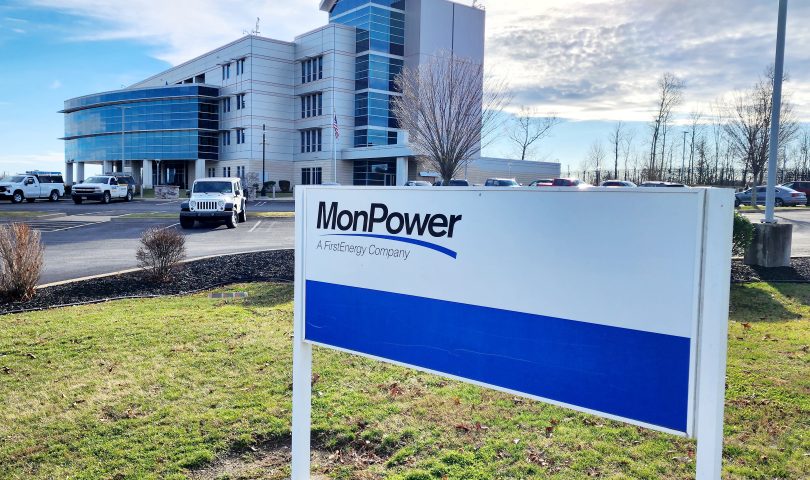MORGANTOWN – A few dozen people aired their views to the Public Service Commission Monday evening regarding the Mon Power/Potomac Edison proposal to cut in half the net-credit for customers who use home solar energy.
The hearing ran nearly two hours, and not a single person supported the proposal. A few common themes emerged and we offer a sampling of the comments. (Not all the speakers spelled their names.)
Richard Rafus, who has 100 panels on his land, said, “This is just a ploy to discourage solar expansion in West Virginia.” Net metering helps fight climate change while creating jobs and fostering clean energy production.
Elizabeth Opyoke Cruikshank lives in Marion County and helps people hook up to solar and produce power “with the energy that God gave us right here in West Virginia.” Many people can’t afford their power bills, which are sometimes higher than their mortgages, and net metering helps them put money in their bank accounts. “Why should I not be compensated fairly for providing FirstEnergy with power?”
As background, the net-metering proposal is part of an overall base rate case for the FirstEnergy sisters. They are requesting $207.5 million, including for infrastructure and their energy assistance program. The hike would cost the average residential customer $18.07 per month, a 15% hike. The overall proposed increase across all customer types – residential, commercial, industrial and street lighting – is 13%.
Net-metering customers generate all or a portion of their own power, typically through solar, and receive credits on their bill for any power they generate in excess of what they use.
Currently, the companies provide a full 1-to-1 credit, meaning energy given to the utility is worth the same as energy bought from the utility. The current residential base rate is about 11.4 cents per kilowatt hour (kWh), and could go up to about 13 cents as the companies’ several rate cases reach their respective conclusions.
The companies propose to change that to base credits on the wholesale rate for electricity, which the filings calculate at 6.6 cents per kWh – roughly half of the 13 cents per kWh. This would take effect for new net-metering customers joining after March 27.
PSC staff have agreed that the credit needs to be reduced but proposed a middle ground: 8.8 cents per kWh.
PSC chair Charlotte Lane opened the hearing by noting that all the parties in the case have reached settlement on all the aspects except net metering. While the settlement is not yet filed, she said they have agreed to a $108 million hike – a 7.9% increase, raising the monthly average residential bill by $9.94, from $123.50 to $133.44. The net-metering issue will be discussed at a Thursday evidentiary hearing.
Returning to comments, Aaron Millner, a solar installer said the encouragement of solar power under the Inflation Reduction Act provided the best way for him to stay in state with his family. The net-metering credit reduction “won’t push me away, but it will make it a lot harder for me to stay. … It’s just not the right thing to do.”
Heather Ranson, of Cass, said she hopes to be a solar owner and be compensated fairly and equitably. She works in the solar industry and appreciates her career that lets her stay in West Viringia and help fellow West Virginians.
Electricity costs have more than doubled while solar costs have fallen 50%, she said, and walking back the path to affordable energy flies in face of the PSC mission of ensuring affordable energy. “A diversified grid is a more resilient grid.”
Casey J. Robinson is an investment counselor who has done four solar projects. But cutting the creidt would mean he’d have to work hard to find a way to justify the investment for others going forward.
Nancy Bruns, a Kanawha County business owner, said she put solar panels on her business buildings. Keeping the 1-1 credit will allow other businesses and residents to go solar. Solar is already a large economic driver and is growing. “We don’t want to move backward.”
Beth Rota, of Monongalia County, said she installed solar four years ago. She believes in energy Independence, sustainability and cost-effective enegy. The companies’ proposal is an effort to discourage further solar development and undermine a robust energy grid.
Chris Tincher is with the International Brotherhood of Electrical Workers in Charleston and presented a petition with 121 signatures opposing the proposal. Net-metering has a positive impact on communities and has fostered remarkable growth in the energy sector.
And Anastasia Riley, of Morgantown, has 41 panels on her home. Last year she produced 16.4 megawatts and consumed 16.3 MW. As a single mom, the credits help her make ends meet during the winter months.
The companies have said they propose to reduce the credit in order to avoid cross-subsidization, in which regular customers would foot part of the cost of powering home solar customers.
Email: dbeard@dominionpost.com




